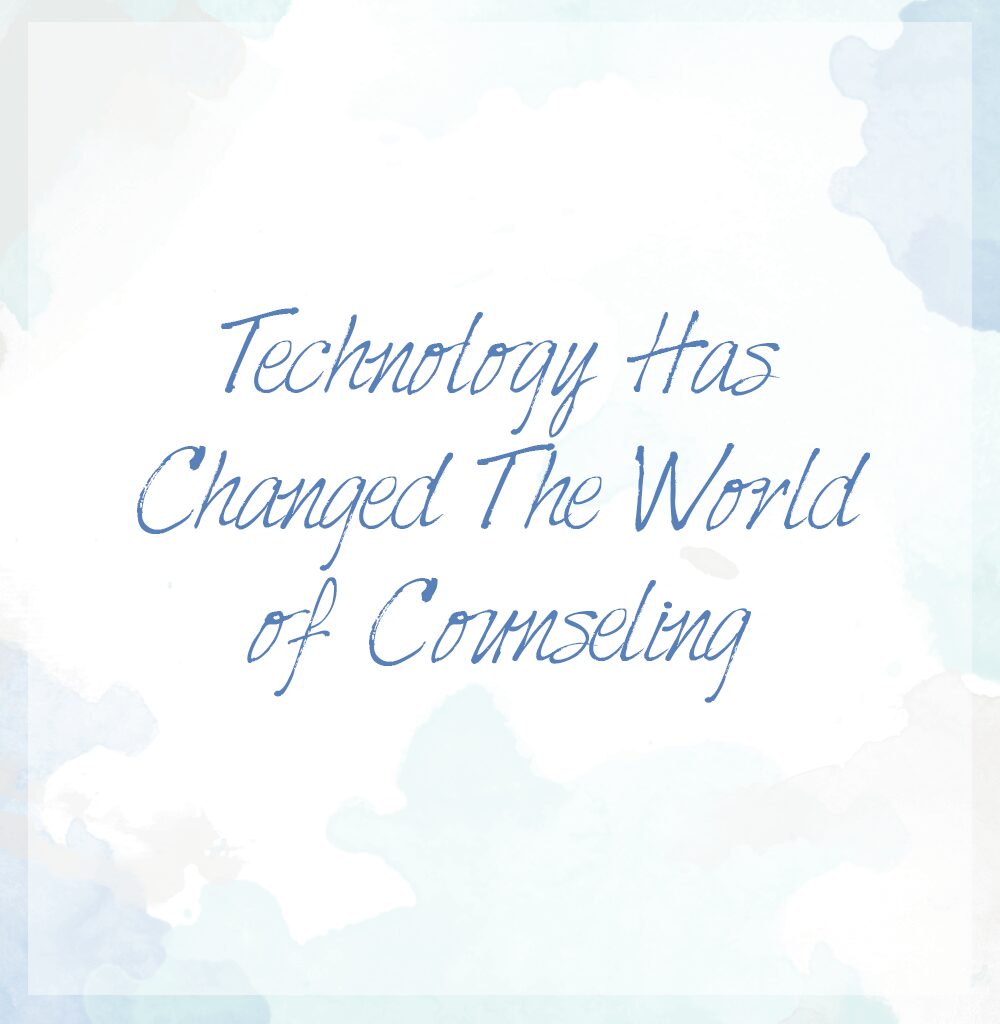Everything is constantly evolving and changing, including technology. Technology has become more and more a part of our daily lives. We use it to cook our food, drive for us, protect our homes, and supply us with entertainment. Technology has opened a whole new world to accomplish goals or tasks. For example, cell phones have provided us the freedom to be in touch with family and friends no matter our location, computers give us a world of information by just a few clicks of a button, and we are able to control lights and appliances by the command of our voice. Technology has also changed the accessibility of counseling. Calkins (2021) reported that virtual counseling usage skyrocketed due to being counselors only means to continue to provide help, support, and treatment during the pandemic and stay- at- home orders. Therapists are now able to provide counseling services through secure and compliant video platforms to a wider range of individuals.
Speaking on the biggest foundational benefit pieces of virtual counseling is availability and accessibility, both for the counselor and the client. Counselor’s time availability could be wider due to eliminating driving time and in turn the client’s availability may also open more because they do not need to take time off work or drive to the counselor’s office to attend a session. Saedi (2019) discussed that this could also be a safety perk for clients; if clients do not have to worry about driving then potential traffic accidents and dangerous weather/ driving conditions can be avoided. Virtual counseling allows the client and the counselor to connect where the client is at. The other foundational benefit is accessibility, client’s participating in counseling over their lunch break, waiting to pick up children from school, unable to drive to the counselor’s office, or simply having the comforts of home while working towards difficult goals. Saedi (2019) and Burke (2018) both wrote that virtual counseling allows clients that live in remote areas, attending college, or disabled to have access to mental health services that were a limitation because they couldn’t transport themselves to the counselor’s office space. Virtual counseling has opened a door of help and support for those that didn’t think it was possible for themselves.
Specifically, discussing benefits of virtual counseling for those that are struggling with Obsessive- Compulsive Disorders. Those struggling with obsessive thoughts and cope using compulsive behaviors have many triggers that involve their personal space or items. The goal for counseling is that the clients can transfer skills learned into their actual life circumstances (Hsia, 2020.) Having the capability to already be in some of these circumstances because of virtual counseling is helpful for the client to see more of the benefit of all their hard work. Conducting Exposure- Response Prevention via virtual media allows the counselor and client to complete exposures during sessions with the triggering items or places within their homes. For example, if a client experiences high anxiety due to a “messy” bathroom then the counselor and client could conduct a portion of the session from the bathroom. Counselors can help the client step by step through using coping skills to bring anxiety down and process the thoughts and feelings that they are experiencing in the moment. This can be helpful for the client to gain confidence in participating in exposures between sessions because they know what to expect and how to lower their anxiety. Dr. Hsia (2020) wrote that exposures can be challenging, and it is valuable that clients can have live coaching and the ability to process successes the client makes in the place that we want them to stay maintained.
As we know, technology is becoming more and more inclusive of our daily lives. Calkins (2020) quoted Dr. Jeanine Turner said, “when the pandemic hit within weeks everyone adapted to the situation and now that it has taken off- there will be no going back.” Dr. Turner was speaking about adapting to virtual counseling and that many counselors have chosen to continue to run their private practice solely virtual. There is some truth to this quote because our communities adapt and are drawn to ease. Being able to access mental health support wherever you are comfortable can be easier for some. For those that are debating on whether virtual counseling or in- person is the best fit for them, discuss with the counselor on what each option would look like. I hope that you find it comforting to know that it is your right as a client that if at any point you would rather switch to the other means then that is within your right. Talk with your counselor and see what your options could be and what would be the most effective method to reach your counseling goals.
Resources
Abrams, Z. (2020). How well is telepsychology working? American Psychological Association. Retrieved from https://www.apa.org/monitor/2020/07/cover-telepsychology
Burke, E. (2018). The benefits of telehealth counseling. Empowered Therapy, INC. Retrieved from http://empoweredtherapy.org/the-benefits-of-telehealth-counseling/
Calkins, H. (2021). Online therapy is here to stay. American Psychological Association. Retrieved from https://www.apa.org/monitor/2021/01/trends-online-therapy
Hsia, M. (2020). The benefits of online therapy for OCD and anxiety. Cognitive Behavior Therapy Center of Southern California. Retrieved from https://cbtsocal.com/the-benefits-of-online-therapy-for-ocd-and-anxiety/
Saedi, G. (2019). 14 benefits of teletherapy for clients. Psychology Today. Retrieved from https://www.psychologytoday.com/us/blog/millennial-media/201901/14-benefits-teletherapy-clients

